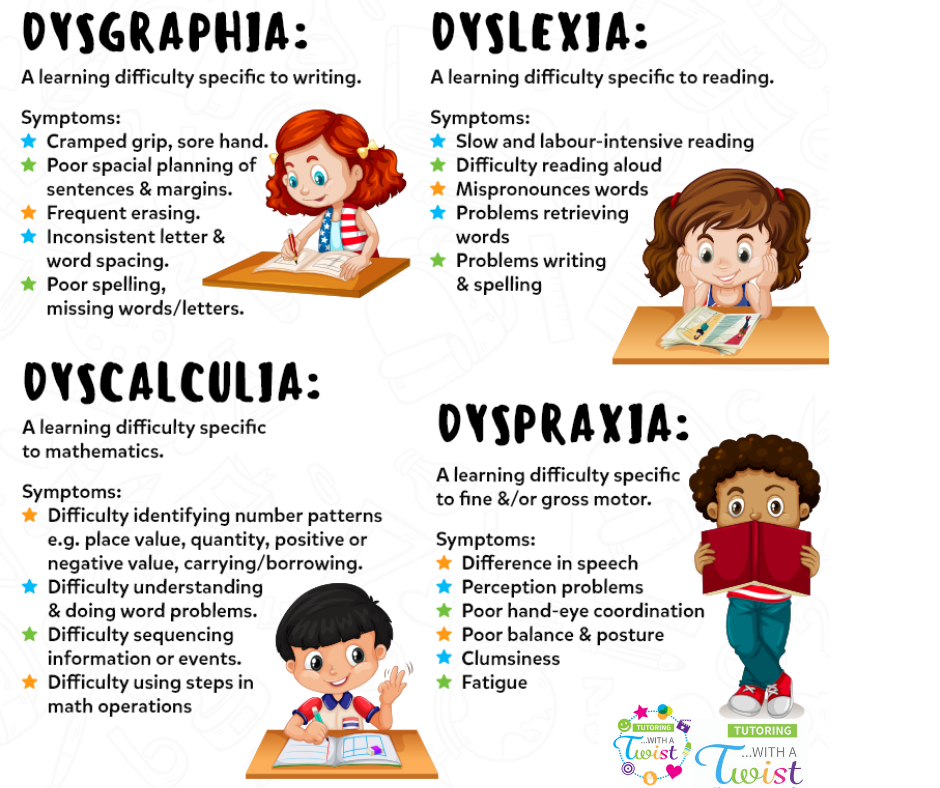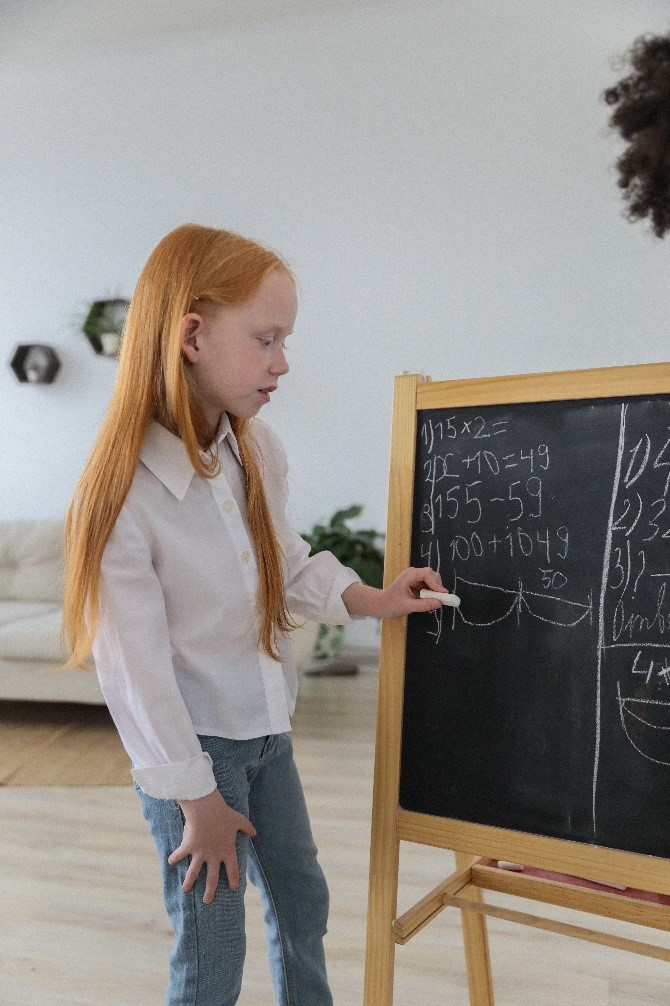Dyslexia affects 5% – 10% of the population, and to say it makes learning difficult is an understatement. If your child suffers from dyslexia, it can be a challenge to find proper help. Fortunately, dyslexia tutoring can make a huge difference.
What is Dyslexia?
Dyslexia is a learning disability that affects the way students interpret and express letters, words, and sounds. This impacts the way students learn to read, write, and speak. Dyslexic students will often have a harder time becoming proficient with language due to these obstacles.
More specifically, dyslexia presents problems when formulating letters and their associated sounds. It also interferes with a student’s ability to effectively read words and correctly identify the relationships between letters. This means dyslexic students often mistake certain letters for different letters when reading, writing, and speaking.
As a result, dyslexic students have problems combining letters and sounds to make words. It also impacts their ability to deconstruct words into their component parts and sound them out. Dyslexia can even hinder a student’s recognition of patterns, making it difficult to do things such as rhyming words together.
How to Help Students with Dyslexia
Dyslexia is a hurdle, but there are ways to overcome it. Dyslexia tutoring can be incredibly effective at helping students work through the challenges in their way. Focused dyslexia tutoring works through the application of MSLE and the Orton-Gillingham method.
Multisensory Structured Language Education (MSLE)
Since dyslexic students often struggle with all three of reading, writing, and speaking, it’s important to engage each of these skills at the same time when learning language. That’s where MSLE comes in.
Dyslexia tutoring with MSLE helps students form relationships between letters, words, and sounds by appealing to multiple senses at once. It’s important for dyslexic students to create solid bonds between the way a letter appears, the way it is written, and the way it sounds. MSLE allows students to do exactly that.
By combining visual, auditory, and kinesthetic exercises (just like the VARK learning styles), MSLE helps dyslexic students with their understanding and comprehension of language. The principles of MSLE can be applied to other areas of study as well, but they are particularly effective when it comes to dyslexia tutoring.
The Orton-Gillingham Method
The main approach to education for dyslexic students is the Orton-Gillingham method. It has been in use for over 80 years and has helped many students learn language despite their dyslexia.
The Orton-Gillingham method uses a focused application of MSLE to help students with reading, writing, and speaking. It works best in one-on-one scenarios, such as dyslexia tutoring, as opposed to group scenarios. This allows the instructor to give the student more attention and ensure the formation of healthy language skills.
To build these skills, a dyslexia tutor will use MSLE to correct confusion around similar letters and sounds. For example, a student will practice writing the letter ‘b’ with a well-defined series of pencil strokes in a particular order (drawing the vertical line first before finishing with the half-circle) while saying the letter aloud. They will then practice the letter ‘d’ by using a different set of pencil strokes in a different order (drawing the half-circle before the vertical line).
Since dyslexic students struggle with language, they need extra time to develop their talents. This means it’s important to provide them with dyslexia tutoring regularly. Repetition is absolutely crucial to make sure the relationships between letters, words, and sounds are being built and retained. The Orton-Gillingham method should be used as often as possible to achieve the best results.
When at home, you can help your child by using MSLE techniques too. Again, repetition and routine help keep good habits, so even simple exercises are valuable. Ask your child what they’ve been working on, or talk to your student’s teacher/tutor for more information.
Our tutors have the opportunity to take the Orton-Gillingham training, and those who have suggest it is a wonderful way to approach education as a whole. While the Orton-Gillingham method is great for dyslexia tutoring, we like to view it as one of the many options available for all students.
Also, we have many options for dyslexic students beyond the Orton-Gillingham method, so we’re always ready with a variety of ways to teach. We never narrow our focus to just one approach, and that’s part of our commitment to deliver the best possible tutoring experience for everyone.
Dyslexia Canada
Dyslexia Canada is an organization dedicated to raising awareness about dyslexia and trying to help those who live with it. They have put together a dyslexia slideshow that anyone can use for spreading information about dyslexia. Their advocacy work also helps inspire change, such as BC’s decision to invest in developing an early reading screening tool. Give them your support today!
What About Dyscalculia?
Dyscalculia is a learning disability that affects the way students process numbers. It’s often referred to as ‘math dyslexia’, but it isn’t quite the same thing. Students diagnosed with dyscalculia struggle to perform basic mathematical operations such as addition and multiplication, have difficulty counting and estimating, and usually feel anxiety when trying to work with numbers.
If your child has dyscalculia, it’s not a result of a poor education system, and it doesn’t mean they’re not smart. It’s a real disability that significantly hinders a student’s numeracy skills, but there are ways to help.
Just like dyslexia, dyscalculia can be treated with a multisensory approach to learning. Dyscalculic students benefit from using their hands and voice when processing numbers. Seeing numbers in a variety of forms helps a lot too. Dyscalculic students often have difficulty associating a number with a group of things represented by that number, so it’s important to make multiple connections.
For example, one exercise might include examining a group of 4 apples. A student would count them, say the number ‘4’ aloud, and write the number ‘4’ and the word ‘four’. Then students might represent 4 in a kinesthetic way, such as by clapping their hands 4 times. Just like dyslexia tutoring for language, this helps students form strong bonds between numbers.
Benefits of Dyslexia Tutoring
If not properly accommodated, dyslexic students can struggle in a traditional learning environment. This can lead to feelings of shame and embarrassment, and students might think they’re not smart. As a result, dyslexic students can develop self-esteem and confidence issues that last throughout childhood and into adulthood.
When students work with a dyslexia tutor, they will make steady progress and receive positive reinforcement. This empowers students and gives them the confidence to approach learning with optimism. Once they see that they can do it, they’ll start to believe it too, and that makes a huge difference.
In addition to positive psychological effects, dyslexia tutoring lends itself to improved grades as well. Untreated dyslexia can hamper language comprehension skills into high school and adulthood, so it’s important to get help early. Dyslexia tutoring improves academic performance, showing students they’re more than capable of success.
Get Started with Dyslexia Tutoring
Dyslexia makes learning difficult, but that difficulty can be overcome with the right help. At Tutoring…With a Twist*, we offer dyslexia tutoring as part of our special education tutoring. Our twisted tutors are experienced with multisensory learning, and they’re always happy to lend a hand.
If you think your child could benefit from dyslexia tutoring, don’t hesitate to contact us. We would love to be a part of your child’s success—let’s get there together!
To stay current on what’s new in the world of education, check out our Facebook page.
*Services provided by With a Twist Education Ltd.


Comments 4
Hi,
I had my daughter with you guys last year via online. Her tutor was Keith Perley. I’m interested in enrolling her again with him, this time focusing on dyslexia tutoring. While she hasn’t be formally diagnosed, I’m certain she has it. She is on a waiting list.
Hi Pieta,
We’d love to help your daughter again :)! Keith still works with us. He’s actually taking training specifically in working with learners with dyslexia.
I have emailed you.
Thanks!
Amber
I have a 13 year old daughter. She has adhd and dyslexia. She just started grade 7 and is currently reading at a grade 2 level. Please help, we do not have many resources where we live and her father and I hate to see her struggle with just reading.
Hi
I need help for my younger daughter.
She is at grade 4 but don’t read yet.
My oldest daughter have dyslexia.
We worked with a private orthophonist at Quebec.
But for the younger we don’t have information here in Ontario
Thanks